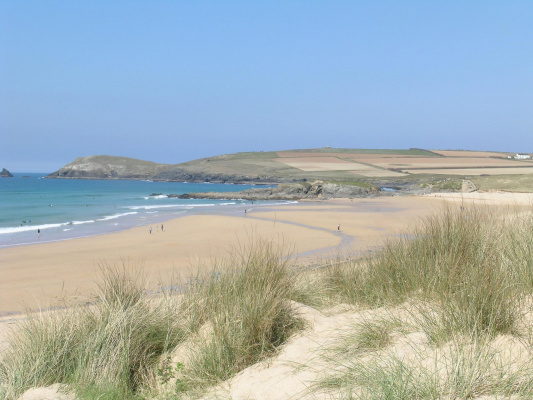
on 30/06/2023
Record-Breaking Heatwave Sweeps Cornwall and Devon
In an unprecedented turn of events, temperatures in Cornwall have skyrocketed, reaching a scorching 36°C (96.8°F), setting a new record for the region. Bude, a coastal town in Cornwall, experienced this remarkable heatwave, surpassing the previous record of 33.9°C (93°F) set back in June 1976. Meanwhile, in Devon, Chivenor recorded a temperature of 35°C (95°F), just shy of the previous record of 35.4°C (95.7°F) at Saunton Sands in August 1990.
During a visit to Cornwall, Prince Charles emphasized the gravity of the situation, stating that there is a "genuine emergency" not only for Cornwall and the UK but for the entire world. His remarks underscored the urgent need to address the climate crisis.
As the heatwave persists, an amber warning has been issued by the Met Office for Devon and Cornwall, indicating exceptionally high temperatures for Tuesday. In Plymouth, the mercury soared to 34°C (93°F), prompting residents to seek solace at the city's seafront lido, where the water offered a relatively cool retreat at 22°C (72°F).
Thankfully, relief is expected on Wednesday as Atlantic winds replace the hot continental winds, leading to a drop in temperatures. The Duke of Cornwall, accompanied by the Duchess of Cornwall, echoed the need for action during a garden party at Boconnoc House near Plymouth, stressing the essential nature of commitments towards achieving net-zero emissions.
David Braine, a weather forecaster for BBC Spotlight, analyzed the unusual weather patterns, noting that temperatures above 30°C (86°F) are uncommon for Cornwall and Devon due to the moderating influence of the nearby sea. However, the current heatwave can be attributed to the advection of hot air from France and an extended period of dry, warm weather, which has heated the ground and buildings. These combined factors have pushed temperatures to extraordinary levels, with overnight lows remaining as high as 23-25°C (73-77°F).
In response to the extreme conditions, both Great Western Railway and South Western Railway have implemented reduced train timetables, cautioning passengers about potential cancellations and longer journey times due to speed restrictions. Slowing down trains helps prevent track buckling by keeping them cooler. Gritters have also been deployed to prevent road surfaces from melting.
Luke Lane Prokopiou, an RNLI supervisor at Bantham beach in Devon, advised the public on how to cope with the heat, emphasizing the importance of sun protection, staying hydrated, and wearing appropriate clothing such as hats, sunglasses, and long-sleeved shirts. Additionally, he encouraged beachgoers to bring shade options like umbrellas or windbreaks to ensure comfort and safety.
The current heatwave serves as a stark reminder of the pressing need to address climate change and its far-reaching consequences, reinforcing the significance of collective efforts to mitigate its impact on communities worldwide.